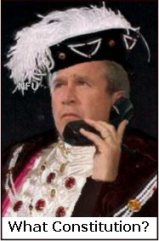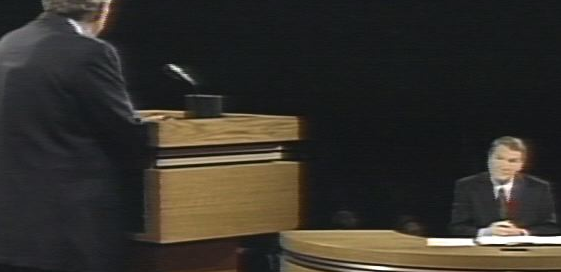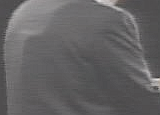| NewsFollowUp.com | sitemap | ||||
| Bush
Watch_3
|
Bush pages 1 2 3 4 | Bush Fortune, BBC documentary |

|
Brian Stauffer, The Nation | |
| NewsFollowUp.com | sitemap | ||||
| Bush
Watch_3
|
Bush pages 1 2 3 4 | Bush Fortune, BBC documentary |

|
Brian Stauffer, The Nation | |
|
||||||||||||
| Margie Schoedinger top | ||||||||||||
| PROGRESSIVE | REFERENCE | CONSERVATIVE* | ||||||||||
|
|
|
||||||||||
| Bush, Born Again Christian top | ||
| PROGRESSIVE | REFERENCE | CONSERVATIVE* |
|
|
|
 |
 |
| Wired in 1st debate, 2004 top | ||
| PROGRESSIVE | REFERENCE | CONSERVATIVE* |
|
|
|
| Negroponte Watch top | ||
| PROGRESSIVE | REFERENCE | CONSERVATIVE* |
|
|
|
| Signing Statements top MORE | ||
| PROGRESSIVE | REFERENCE | CONSERVATIVE* |
|
|
|
| Notes: on signing statements, |
| Cheney aide is screening legislation Adviser seeks to
protect Bush power
By Charlie Savage, Globe Staff | May 28, 2006 WASHINGTON -- The office of Vice President **** Cheney routinely reviews pieces of legislation before they reach the president's desk, searching for provisions that Cheney believes would infringe on presidential power, according to former White House and Justice Department officials. The officials said Cheney's legal adviser and chief of staff, David Addington, is the Bush administration's leading architect of the "signing statements" the president has appended to more than 750 laws. The statements assert the president's right to ignore the laws because they conflict with his interpretation of the Constitution. The Bush-Cheney administration has used such statements to claim for itself the option of bypassing a ban on torture, oversight provisions in the USA Patriot Act, and numerous requirements that they provide certain information to Congress, among other laws. Previous vice presidents have had neither the authority nor the interest in reviewing legislation. But Cheney has used his power over the administration's legal team to promote an expansive theory of presidential authority. Using signing statements, the administration has challenged more laws than all previous administrations combined. "Addington could look at whatever he wanted," said one former White House lawyer who helped prepare signing statements and who asked not to be named because he was describing internal deliberations. "He had a roving commission to get involved in whatever interested him." Knowing that Addington was likely to review the bills, other White House and Justice Department lawyers began vetting legislation with Addington's and Cheney's views in mind, according to another former lawyer in the Bush White House. All these lawyers, he said, were extremely careful to flag any provision that placed limits on presidential power. "You didn't want to miss something," said the second former White House lawyer, who also asked not to be named. Cheney and Addington have a long history. Addington was a Republican staff member on the congressional committee investigating the Iran-Contra scandal in the 1980s, while Cheney was the ranking GOP House member. When Cheney became defense secretary under President George H. W. Bush , he hired Addington as Pentagon counsel. After Cheney became vice president in 2001, he again hired Addington as counsel. Addington played a major role in shaping the administration's legal policies in the war on terrorism, including a 2002 memo arguing that Bush could authorize interrogators to bypass anti torture laws. In October, when Cheney's former chief of staff, I. Lewis "Scooter" Libby , was indicted for perjury and resigned, Cheney replaced Libby with Addington. A spokeswoman for Cheney's office, asked to comment on Addington's role in reviewing legislation, said, ``We do not comment on internal deliberations." Addington, through the spokeswoman, declined to be interviewed. But Martin Lederman , who worked in the Justice Department's Office of Legal Counsel under presidents Bill Clinton and George W. Bush , said that Addington is simply doing the day-to-day legwork for Cheney and that he is influential within the administration because of the vice president's desire to enhance executive power and Bush's willingness to endorse Cheney's views. "In every administration, Democratic and Republican, there are officials with strongly held constitutional views, including somewhat idiosyncratic views," said Lederman, now a law professor at Georgetown University. "What is new is that the extremely idiosyncratic and aggressive constitutional views are being adopted by the vice president and, therefore, by the administration." Previous administrations left the reviewing of legislation to the White House counsel's office and the Justice Department's Office of Legal Counsel. "What's happening now is unprecedented on almost every level," said Ron Klain , who was chief of staff to Vice President Al Gore from 1995 to 1999. "Gore was a very active policy maker in the Clinton administration, but that didn't include picking through bills of Congress to find things to disagree with." The administration insists that Bush's use of signing statements is not unprecedented. Justice Department spokesman Brian Roehrkasse said, "President Bush's signing statements are lawful and indistinguishable from those issued on hundreds of occasions by past presidents." The use of signing statements was rare until the 1980s, when President Ronald W. Reagan began issuing them more frequently. His successors continued the practice. George H. W. Bush used signing statements to challenge 232 laws over four years, and Bill Clinton challenged 140 over eight years, according to Christopher Kelley , a political science professor at Miami University of Ohio. But in frequency and aggression, the current President Bush has gone far beyond his predecessors. All previous presidents combined challenged fewer than 600 laws, Kelley's data show, compared with the more than 750 Bush has challenged in five years. Bush is also the first president since the 1800s who has never vetoed a bill, giving Congress no chance to override his judgments. Douglas Kmiec , who as head of the Office of Legal Counsel helped develop the Reagan administration's strategy of issuing signing statements more frequently, said he disapproves of the "provocative" and sometimes "disingenuous" manner in which the Bush administration is using them. Kmiec said the Reagan team's goal was to leave a record of the president's understanding of new laws only in cases where an important statute was ambiguous. Kmiec rejected the idea of using signing statements to contradict the clear intent of Congress, as Bush has done. Presidents should either tolerate provisions of bills they don't like, or they should veto the bill, he said. "Following a model of restraint, [the Reagan-era Office of Legal Counsel] took it seriously that we were to construe statutes to avoid constitutional problems, not to invent them," said Kmiec, who is now a Pepperdine University law professor. By contrast, Bush has used the signing statements to waive his obligation to follow the new laws. In addition to the torture ban and oversight provisions of the Patriot Act, the laws Bush has claimed the authority to disobey include restrictions against US troops engaging in combat in Colombia, whistle-blower protections for government employees, and safeguards against political interference in taxpayer-funded research. Cheney's office has taken the lead in challenging many of these laws, officials said, because they run counter to an expansive view of executive power that Cheney has cultivated for the past 30 years. Under the theory, Congress cannot pass laws that place restrictions or requirements on how the president runs the military and spy agencies. Nor can it pass laws giving government officials the power or responsibility to act independently of the president. Mainstream legal scholars across the political spectrum reject Cheney's expansive view of presidential authority, saying the Constitution gives Congress the power to make all rules and regulations for the military and the executive branch and the Supreme Court has consistently upheld laws giving bureaucrats and certain prosecutors the power to act independently of the president. One prominent conservative, Richard Epstein of the University of Chicago Law School, said it is "scandalous" for the administration to argue that the commander in chief can bypass statutes in national security matters. "It's just wrong," Epstein said. "It is just crazy as a matter of constitutional interpretation. There are some pretty clear issues, and this is one of them." Laurence Tribe , a prominent liberal at Harvard Law School, said: "Nothing in the text and structure of the Constitution, or Supreme Court precedents, supports the Bush-Cheney assertion that Congress cannot limit or direct what government officials may or must do."
|